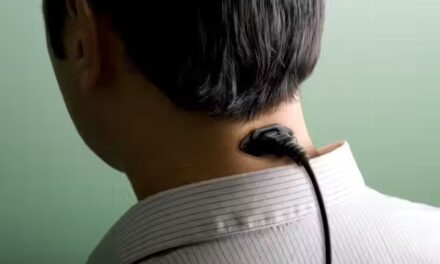Kenneth Roth, the former executive director of Human Rights Watch, says ‘broad disapproval’ pushed the Harvard Kennedy School’s dean to reverse initial decision to block his fellowship [File: Carlo Allegri/Reuters]
Harvard University has reversed course and will extend a fellowship to Kenneth Roth, the former head of Human Rights Watch, after the US academic institution faced a barrage of criticism for blocking the offer.
The Nation news magazine reported earlier this month that the dean of the Harvard Kennedy School, which studies public policy and government, vetoed plans to offer a fellowship to Roth, who led Human Rights Watch (HRW) for nearly three decades.
The veto reportedly came as a result of the group’s criticism of Israel. The Nation said the dean, Doug Elmendorf, allegedly cited an “anti-Israel bias” and Roth’s tweets on Israel in his decision to block the fellowship.
The move prompted an outpouring of condemnation from students, academics and rights activists, including Roth, who described it as an affront to academic freedom and a “sorry episode” for Harvard.
The New York Times first reported on Thursday morning that Elmendorf had sent an email to the Kennedy School community saying that the school would now extend an invitation to Roth.
Elmendorf said his initial decision had been in “error” and was not intended “to limit debate at the Kennedy School about human rights in any country”, the newspaper reported. The dean also rejected accusations that he blocked the offer due to pressure from Harvard donors.
“We will extend an offer to Mr. Roth to serve as a Fellow. I hope that our community will be able to benefit from his deep experience in a wide range of human rights issues,” Elmendorf said in the email, as reported by the Reuters news agency.
The Harvard Kennedy School and an assistant to Elmendorf did not immediately respond to Al Jazeera’s emailed requests for comment on the Times’s initial report on Thursday morning.
In a statement shared on Twitter, Roth said he was “thrilled” that Elmendorf had reversed course and would not block his fellowship at the Kennedy School’s Carr Center for Human Rights Policy, adding that he looked forward to spending time there.
“I am grateful to the Kennedy School faculty as well as many other faculty and students at Harvard and around the world for their overwhelming disapproval of Dean Elmendorf’s original decision. That broad disapproval undoubtedly yielded this change of heart,” Roth wrote.
Hundreds of Harvard community members, as well as other academics and rights activists, had come out against the university’s decision.
The Harvard Kennedy School Palestinian Alumni Collective last week called for Elmendorf’s to resign, saying the dean had demonstrated “hostility to academic freedom and honest human rights discourse”.
Human Rights Watch also slammed the decision in a letter to the US university, saying it would “have a lasting impact on scholars and activists, particularly Palestinians” who will fear professional repercussions for speaking out against Israeli human rights abuses.
The incident came amid a crackdown on Palestinian activism in the United States, especially against the Boycott, Divestment and Sanctions movement that seeks to hold Israel accountable for human rights violations.
In 2021, HRW released a report accusing Israel of practising the crime of apartheid to subjugate Palestinians — an accusation that was rejected by the Israeli government but echoed by other rights groups, including Amnesty International.
In a blog post this week, the director of the human rights programme at Harvard Law School, Gerald Neuman, said the decision to reject Roth’s fellowship sent “the wrong message … to authoritarian actors at home and around the world”.
“Dismissing substantive and carefully analyzed critique as bigotry is a tactic of authoritarian regimes, unworthy of a major university,” Neuman wrote.
In his statement on Thursday, Roth called for more information about the factors that motivated Elmendorf to initially reject his fellowship offer. He also said he remained worried about academic freedom.
“Given my three decades leading Human Rights Watch, I was able to shine an intense spotlight on Dean Elmendorf’s decision, but what about others?” Roth wrote.
“The problem of people penalized for criticizing Israel is not limited to me, and most scholars and students have no comparable capacity to mobilize public attention.”















